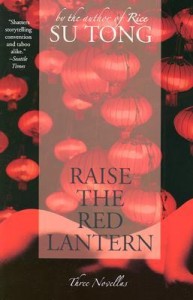 In Night, a memoir by Elie Wiesel, the author describes the horror of his experience during the Holocaust with only the scantest details. The scant use of adjectives allows the reader to fill in their own worst fears and makes the story more poignant than shocking in its horror.
In Night, a memoir by Elie Wiesel, the author describes the horror of his experience during the Holocaust with only the scantest details. The scant use of adjectives allows the reader to fill in their own worst fears and makes the story more poignant than shocking in its horror.
Wiesel grew up in an isolated part of Transylvania where the Jewish population was deported relatively late in the war. It wasn’t until 1944 that he and his family were removed to Auschwitz. But earlier in the war, there were indicators of the horrors to come, such as when one of the deported foreign Jews returned to Sighet and told Wiesel about what had happened to the rest of the deportees, “The Jews were ordered to get off [of the trains] and onto waiting trucks. The trucks headed to a forest….Without passion or haste, [the Germans] shot their prisoners….Infants were tossed into the air and used as targets.” The events themselves are revolting, but that revulsion stems entirely from the action. The passage (including the omitted portion) contains only two adjectives: waiting (re: trucks) and huge (re: trenches). Wiesel is letting the events speak for themselves.
The description is similarly stark when Wiesel and his fellow travelers are unloaded at Auschwitz:
An SS came toward us wielding a club. He commanded:
“Men to the left! Women to the right!”
Eight words spoken quietly, indifferently, without emotion. Eight simple, short words. Yet that was the moment when I left my mother….I didn’t know this was the moment in time and the place where I was leaving my mother and [sister] forever.
He is remarking on the emotionlessness of the officer’s speech, and yet his own description here is emotionless. The emotion lies in the event itself—in the loss of his mother. He could have engaged in histrionics and described the horror of the loss, but somehow the flatness of the delivery and the lack of adjectives is more poignant than any full description could have been.
There are moments in the book where Wiesel elaborates on the description, but they tend to set scenes at the beginning of a section. For example, the chapter on his march out of the camp starts with these words: “An icy wind was blowing violently.” But the weight of the emotion in this chapter is not in the adjectives. This is how he describes the march: “The idea of dying, of ceasing to be, began to fascinate me. To no longer exist. To no longer feel the excruciating pain of my foot.” The one adjective, “excruciating” takes on so much weight because it rests alone in the passage. I was left with the feeling that while he fails to mention the degree of pain elsewhere, this pain must truly be awful to be described at all.
Often when people experience trauma, there is a deadness to the experience afterwards and Wiesel’s spare use of adjectives reflects that experience. But he is trusting a sympathetic reader to interject their own feelings into the narrative. There is no room for ambiguity here. Babies used for target practice, being separated from your mother, running toward your death—Wiesel doesn’t have to convince the reader that these things are horrible. The story speaks for itself without heavy description. Although this is a work in translation, it seems unlikely that Wiesel’s wife (the translator) would have taken the initiative to remove his adjectives, so we can be relatively safe in assuming that this element of craft is attributable to Wiesel.
I am thinking about this in relation to my own novel, Polska, 1994. Magda undergoes two major moments of trauma—losing her mother and rape. She also re-lives those moments later. I think it is important that in the initial incident the detail is spare and that the events speak for themselves because these are also not ambiguous experiences. Wiesel also uses the tersest of sentences (several quoted above) and that really gives a sense of the character living in the moment and getting through it in any way he can. I have read many accounts of World War II and the Holocaust and to me this one in its spare-ness seemed among the most emotionally credible. How do you describe the indescribable? In contrast to Jerzy Kosinski’s The Painted Bird, Night is less shocking, but more human.
If this review made you want to read the book, pick up a copy of Night from Bookshop.org. Your purchase keeps indie booksellers in business and I receive a commission.
 In After Rain, William Trevor presents many stories that play with the reader’s plot expectations. Often he creates a compelling, even dangerous, scenario, but then the story unfolds to reveal that the reader was watching the magician’s assistant rather than his hands. Whether the crooks are the protagonists or the antagonists, the result is always the same: Trevor pulls the rabbit from the hat as we expected in the first place, presenting the triumph of conventionality.
In After Rain, William Trevor presents many stories that play with the reader’s plot expectations. Often he creates a compelling, even dangerous, scenario, but then the story unfolds to reveal that the reader was watching the magician’s assistant rather than his hands. Whether the crooks are the protagonists or the antagonists, the result is always the same: Trevor pulls the rabbit from the hat as we expected in the first place, presenting the triumph of conventionality. Su Tong creates a world of magic and mystery in the title novella of Raise the Red Lantern. Though we are never certain if the magic is real or imagined by Lotus, it feels authentic. Su blends the real with the ethereal so gently that even the harshest skeptic can enjoy the mystical elements of the story.
Su Tong creates a world of magic and mystery in the title novella of Raise the Red Lantern. Though we are never certain if the magic is real or imagined by Lotus, it feels authentic. Su blends the real with the ethereal so gently that even the harshest skeptic can enjoy the mystical elements of the story.